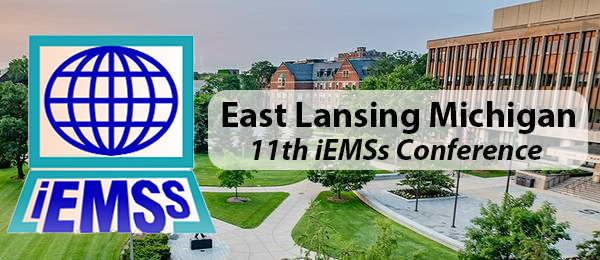Keywords
equity; justice; agent-based modeling; reflexivity; guidance; framework
Start Date
6-7-2022 9:40 AM
End Date
6-7-2022 10:10 AM
Abstract
Advancing equity is a multi-dimensional challenge for society, science, and policy. Agent-based models are increasingly used as scientific tools to advance system understanding, inform decision-making, and share knowledge. Yet, equity has not received due attention within the agent-based modeling (ABM) literature. In this work, we develop a conceptual framework and provide guidance for integrating equity considerations into ABM research and good modeling practice. The framework describes ABM as interfacing with equity outcomes at two levels: the science-society interface and within the model itself. The framework identifies the modeler as a filter and lens that projects knowledge between the target system and the model. Within the framework, we outline three complementary, equity-advancing action pathways: (1) engage stakeholders, (2) acknowledge positionality and bias, and (3) assess equity with agentbased models. For Pathway 1, we summarize existing guidance within the participatory modeling literature. For Pathway 2, we introduce the positionality and bias document as a tool to promote modeler and stakeholder reflexivity throughout the modeling process. For Pathway 3, we synthesize a typology of approaches for modeling equity and offer a set of preliminary suggestions for best practice. Although we focus on ABM, our framework and guidance are likely relevant to other (environmental) modeling applications. By engaging with these action pathways, modelers both reduce the risks of inadvertently perpetuating inequity and harness the opportunities for ABM to play a larger role in creating a more equitable future.
Integrating equity considerations into agent-based modeling: A conceptual framework and practical guidance
Advancing equity is a multi-dimensional challenge for society, science, and policy. Agent-based models are increasingly used as scientific tools to advance system understanding, inform decision-making, and share knowledge. Yet, equity has not received due attention within the agent-based modeling (ABM) literature. In this work, we develop a conceptual framework and provide guidance for integrating equity considerations into ABM research and good modeling practice. The framework describes ABM as interfacing with equity outcomes at two levels: the science-society interface and within the model itself. The framework identifies the modeler as a filter and lens that projects knowledge between the target system and the model. Within the framework, we outline three complementary, equity-advancing action pathways: (1) engage stakeholders, (2) acknowledge positionality and bias, and (3) assess equity with agentbased models. For Pathway 1, we summarize existing guidance within the participatory modeling literature. For Pathway 2, we introduce the positionality and bias document as a tool to promote modeler and stakeholder reflexivity throughout the modeling process. For Pathway 3, we synthesize a typology of approaches for modeling equity and offer a set of preliminary suggestions for best practice. Although we focus on ABM, our framework and guidance are likely relevant to other (environmental) modeling applications. By engaging with these action pathways, modelers both reduce the risks of inadvertently perpetuating inequity and harness the opportunities for ABM to play a larger role in creating a more equitable future.



Stream and Session
false